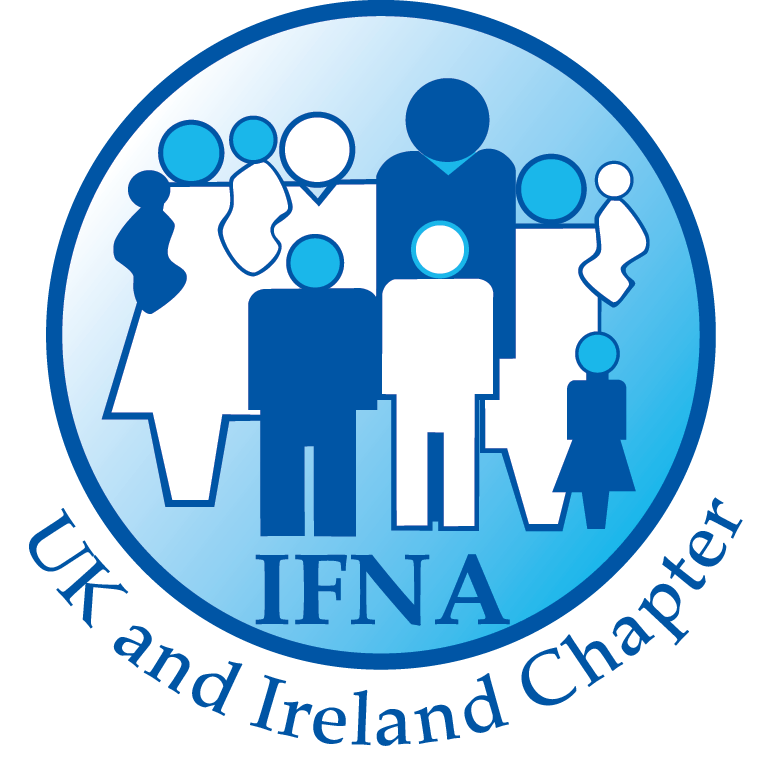Barry Hill – Assistant Professor, Nursing Science and Critical Care, Northumbria University, Newcastle upon Tyne, UK. Barry.Hill@northumbria.ac.uk
February marks celebration and also remembrance of LGBTQIA+ communities. What follows is a short piece of why this topic is important and can only serve to help us as family nurses to care for this community.
Lesbian, Gay, Bisexual, Transgender, Queer, Intersex, Asexual (LGBTQIA+) History in the UK
LGBTQIA+ History Month is a month-long annual celebration of lesbian, gay, bisexual trans, and non-binary history, including the history of LGBTQIA+ rights and related civil rights movements. LGBTQIA+ is an abbreviation for lesbian, gay, bisexual, transgender, queer or questioning, intersex, asexual, and more. These terms are used to describe a person’s sexual orientation or gender identity. In the United Kingdom it is celebrated in February each year, to coincide with the 2003 abolition of Section 28. UCU LGBTQIA+ resources are available.
LGBTQIA+ History Month was initiated in the UK by Schools Out UK and first took place in February 2005, and has since be in process for 18 years. The event is intended to raise awareness of, and combat prejudice against, LGBTQIA+ people and history. By considering this history, exposes the culture of those different from us and helps encourage tolerance through understanding. It is important to recognise that there are still 73 jurisdictions in the world that criminalise private, consensual, same-sex sexual activity; also 331 trans and gender diverse people were murdered in 2019. That is why the community, friends and families continue fighting for equal rights and holding events that teach people about LGBTQIA+ issues. Ultimately LGBTQ+ is a month to pay homage to those who paved the way to equal rights and the countless numbers who were erased, ignored, and discriminated against because of their identity. Table 1 describes some of Stonewalls’ key events from LGBTQIA+ history.
You may believe that life as an LGBTQIA+ person is comfortable in modern-day Britain, yet this community continues to experience prejudice and discrimination and hate crimes. Stonewalls’ new research ‘LGBTQIA+ in Britain Hate Crime and Discrimination’ highlights the disturbing levels of hate crime and discrimination that LGBTQIA+ people still face in Britain today.
- 1 in 5 LGBTQIA+ people have experienced a hate crime or incident because of their sexual orientation and/or gender identity in the last 12 months.
- 2 in 5 trans people have experienced a hate crime or incident because of their gender identity in the last 12 months.
- 4 in 5 anti-LGBTQIA+ hate crimes and incidents go unreported, with younger LGBTQIA+ people particularly reluctant to go to the police.
Furthermore, research based on YouGov polling of over 5000 LGBT people, the research reveals that anti-LGBTQIA+ abuse extends far beyond acts of hate and violence on our streets. Many LGBTQIA+ people still endure poor treatment while using public services and going about their lives, whether in their local shop, gym, school, or place of worship.
Historical Milestones and Legislation
At the beginning of the 1950s, homosexual acts were still considered by law to be criminal offences. The number of convictions rose rapidly in the immediate post-war period as the Home Office pursued prosecution more rigorously. At that time, homosexuality was also the subject of sensationalist reporting in the popular press, and there were several high-profile cases involving public figures.
The Buggery Act 1533
The Buggery Act of 1533, passed by Parliament during the reign of Henry VIII, is the first time in law that male homosexuality was targeted for persecution in the UK. Completely outlawing sodomy in Britain, and by extension what would become the entire British Empire, convictions were punishable by death.
The Criminal Law Amendment Act 1885
In 1885, homosexuality was only illegal regarding the act of buggery, for which the punishment was to be kept in penal servitude for life. This changed when Henry Labouchere, Liberal MP for Northampton, and strong opponent of homosexuality, introduced Section 11 of the 1885 Criminal Law Amendment Act which made all homosexual acts of ‘gross indecency’ illegal. The bill was primarily concerned with the protection of women and girls by increasing the age of consent and yet this small section in the Act was a pivotal change in homosexual legislation. Unusually, this section was passed during a late-night debate in the House of Commons with only a few MPs present. It was under this Act that Oscar Wilde and Alan Turing, among many others, were convicted and punished for committing homosexual acts.
Wolfenden Report 1957
In 1954, the Home Secretary, David Maxwell-Fyfe, appointed the Departmental Committee on Homosexual Offences and Prostitution in Great Britain under Sir John Wolfenden. The Wolfenden Report was published in 1957. It concluded that the criminalisation of homosexuality was an impingement on civil liberty. While the law should prevent abuse and protect the young and other vulnerable individuals, it should not intrude into matters of personal morality. Homosexual acts between consenting adults in private should no longer constitute an offence. The Cabinet opposed any proposal to implement Wolfenden’s recommendations.
Sexual Offences Act 1967
The decriminalisation of male homosexuality had to wait until the more permissive circumstances of the late 1960s. In the House of Lords in 1965, Lord Arran advanced a motion in favour of implementing the recommendations of the Wolfenden Report. In 1966, the Labour backbencher Leo Abse sponsored a Sexual Offences Bill. The Labour Cabinet assumed an attitude of neutrality and allowed a free vote. The Sexual Offences Act of 1967 decriminalised male homosexuality between consenting adults above the age of twenty-one. However, conspiracy to commit or assist homosexual acts remained an offence.
Gay Liberation Front Manifesto 1971 (revised 1987)
The Gay Liberation Front (GLF) was founded by students Bob Mellors and Aubrey Walter. The first meeting was held on 13 October 1970 at the London School of Economics. Shown here is their manifesto, which was published in 1971 and set out the key demands and principles of the GLF. It challenged gay people to come out and be visible, while also exploring how they were oppressed by society. For the GLF, gay liberation was not about law reform, it was about a revolutionary change in society. The diverse politics of people who joined the GLF however, meant that consensus on a single topic was often hard to come by. By the end of 1973 GLF had disbanded, but the organisation and its manifesto, cast a long shadow. Many
gay rights organisations that emerged during the 1980s and 1990s would have their core principles rooted in the work of the GLF.
Section 28 of the Local Government Act 1988
Introduced by the Conservative Government under Margaret Thatcher, banned local authorities from ‘promoting homosexuality’ or ‘pretended family relationships’, and prohibited councils from funding educational materials and projects perceived to ‘promote homosexuality’. The legislation prevented the discussion of LGBTQIA+ issues and stopped pupils getting the support they needed.
Civil Partnerships Act 2004
This act permitted same-sex couples to legally enter binding partnerships, like marriage. The subsequent Marriage (Same-Sex Couples) Act 2013 then went further, allowing same-sex couples in England and Wales to marry; Scotland followed suit with the Marriage and Civil Partnership (Scotland) Act 2014. Northern Ireland enactment the Northern Ireland (Executive Formation) Act 2019, making same-sex marriage legal on 13 January 2020.
The Gender Recognition Act 2004
This act came into effect on 4 April 2005, gave trans people full legal recognition of their gender, allowing them to acquire a new birth certificate – although gender options are limited to ‘male’ or ‘female’. Between July and October 2018, the UK Government consulted the public on reforming the Act.
The Equality Act 2010
The Equality Act 2010 gave LGBTQIA+ employees protections from discrimination, harassment, and victimisation at work. The legislation brought together existing legislation and added protections for trans workers, solidifying rights granted by the Gender Recognition Act. The LGBTQIA+ community continues to fight for equality and social acceptance.
Stonewalls’ 10 Key Events from LGBTQIA+ History
1951 – Roberta Cowell is the first known British trans woman to undergo reassignment surgery. Cowell was a racing driver and World War II fighter pilot. She was born in Croydon and studied engineering at University College London (UCL). She underwent a secret procedure to get a certificate stating that she was intersex. This enabled her to undergo surgery and get a new birth certificate. In later life, she claimed that being intersex was what ‘justified’ her transition and focused specifically on chromosomes and genetics, an approach which was very much ‘of its time’ compared to the modern-day discourse around trans and gender identities.
1967 – the Sexual Offences Act decriminalises sex between two men over 21 and ‘in private’. However, this didn’t extend to the Navy, the Armed Forces, Scotland, Northern Ireland, Channel Islands, or the Isle of Man, where sex between two men remained illegal.
1972 – the first Pride march is held in London, attracting around 2000 participants.
1982 – Terry Higgins dies of AIDS in St Thomas’ Hospital. His partner Rupert Whittaker, Martyn Butler and friends set up the Terrence Higgins Trust, the UK’s first AIDS charity. A year later, the government banned men who have sex with men from donating blood due to the AIDS crisis.
1988 – Margaret Thatcher introduces Section 28 of the Local Government Act 1988. The Act stated that councils should not “promote the teaching in any maintained school of the acceptability of homosexuality as a pretended family relationship”, meaning teachers couldn’t speak about same-sex relationships with their students. This included students coming out to their teachers or tackling homophobic bullying.
1992 – the World Health Organisation declassifies same-sex attraction as a mental illness. The specialised agency of the United Nations, established on 7 April 1948 and headquartered in Geneva, Switzerland, declassified same-sex attraction as a mental illness.
1996 – a landmark case rules that an employee who was about to transition was wrongfully dismissed. It was the first piece of case law anywhere in the world which prevented discrimination in employment or vocational education against a trans person.
1999 – former British National Party member David Copeland bombs the Admiral Duncan, one of Soho’s oldest LGBT bars. The attack killed three and wounded at least 70. Following the attack, a large open-air meeting took place in Soho Square and thousands attended. The Metropolitan Police Assistant Commissioner delivered a speech at the event, marking a turning point in the relationship between the LGBTQIA+ community and the Metropolitan Police.
2004 – the Civil Partnership Act passes, granting civil partnership in the UK. The Act gave same-sex couples the same rights as married opposite-sex couples. Years later in 2013, the Marriage (Same-Sex Couples) Act was passed, legalising same-sex marriages. The Gender Recognition Act also passed in 2004, giving trans people full legal recognition in their appropriate gender. Right now, gender options are still limited to ‘male’ and ‘female’, so non-binary and gender-fluid people are not currently recognised under the Act.

